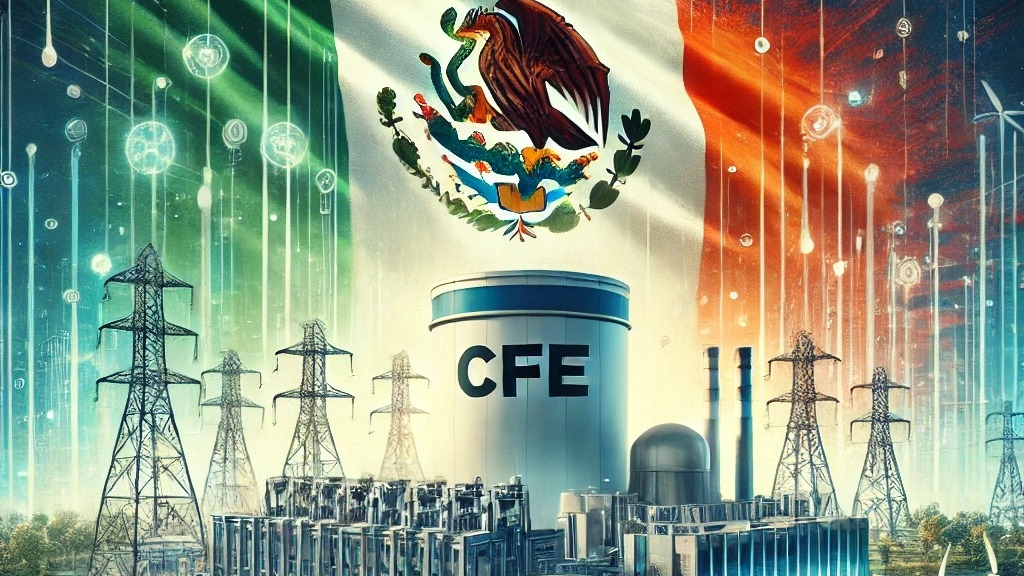México se prepara para reactivar Pemex con nuevas alianzas privadas

El próximo gobierno de México, encabezado por Claudia Sheinbaum, está considerando una apertura estratégica de Pemex a asociaciones de capital con empresas petroleras privadas, un enfoque que contrasta con la política de su predecesor, Andrés Manuel López Obrador.
Este movimiento, impulsado por la necesidad de incrementar las reservas petroleras en medio de una elevada deuda, marca un giro importante en la gestión de la empresa estatal y podría tener profundas implicaciones para la economía y el sector energético del país.
Las asociaciones propuestas, conocidas como “farm-outs”, rememoran la reforma energética de hace una década que permitió a Pemex formar empresas conjuntas con productores privados de petróleo, tanto nacionales como extranjeros. Este modelo, común en la industria internacional, permitió que Pemex compartiera los riesgos y las recompensas de la exploración y producción de petróleo, algo esencial en un contexto donde la empresa enfrenta serios desafíos financieros y operativos. Sin embargo, López Obrador detuvo esta reforma, cancelando subastas para asociaciones y limitando la participación de privados en la operación de bloques petroleros.
La diferencia en la visión entre Sheinbaum y López Obrador sobre el futuro de Pemex subraya una posible tensión en la transición de poder.
Mientras Sheinbaum, una científica con un fuerte enfoque en la energía renovable, no ha delineado claramente su estrategia para Pemex, la necesidad de abordar la producción estancada y las reservas menguantes es evidente. La empresa, que alguna vez fue el motor económico de México, ha visto una caída en sus reservas probadas a 5.98 mil millones de barriles y una disminución en la producción diaria a cerca de 1.5 millones de barriles, una cifra significativamente menor a los 3.4 millones de barriles de hace dos décadas.
En este contexto, el nuevo gobierno planea otorgar al consejo de administración de Pemex mayores poderes de decisión sobre posibles asociaciones, eliminando en gran medida al regulador de petróleo CNH del proceso. Esta medida busca agilizar la capacidad de Pemex para formar alianzas estratégicas que podrían ser cruciales para su supervivencia. Sin embargo, también plantea preocupaciones sobre la centralización del poder y la posible falta de transparencia en la gestión de estos acuerdos.
El campo Trion, un proyecto ultraprofundos en el Golfo de México, representa un ejemplo de lo que podría ser el futuro de Pemex bajo esta nueva estrategia. En este caso, Pemex ha formado una asociación con Woodside Energy, una empresa australiana que posee el 60% del proyecto, mientras que Pemex mantiene el 40% restante. Este tipo de alianzas no solo permite a Pemex compartir los riesgos financieros, sino que también facilita el acceso a tecnologías y conocimientos que podrían mejorar significativamente la eficiencia de la empresa en proyectos de alta complejidad. No obstante, la deuda de casi $100 mil millones de dólares de Pemex y su limitado margen para nuevas inversiones limitan la flexibilidad financiera de la empresa, lo que hace que la ejecución exitosa de estas asociaciones sea aún más crucial.
La idea de expandir la exploración a más áreas refleja una oportunidad significativa para reactivar la industria petrolera en México. Sin embargo, la continuidad y éxito de estas iniciativas dependen en gran medida de cómo se maneje el delicado equilibrio entre las políticas energéticas del gobierno actual y las futuras. Si bien la reforma constitucional que podría eliminar al regulador CNH y otorgar más poder al consejo de administración de Pemex puede acelerar la toma de decisiones, también podría reducir la supervisión y aumentar los riesgos de corrupción y mala gestión.
En resumen, la apertura de Pemex a asociaciones privadas bajo la administración de Claudia Sheinbaum podría revitalizar la empresa y atraer nuevas inversiones al país. Sin embargo, este enfoque también trae consigo riesgos significativos, especialmente si no se maneja con la debida transparencia y un enfoque estratégico que mitigue las debilidades actuales de la empresa. Para el mercado mexicano, estas asociaciones representan una oportunidad para fortalecer su posición en la industria energética global, pero el éxito dependerá de cómo se equilibren las fortalezas y oportunidades con las amenazas y debilidades inherentes al sector.
Colaboración: Editorial Auge.





